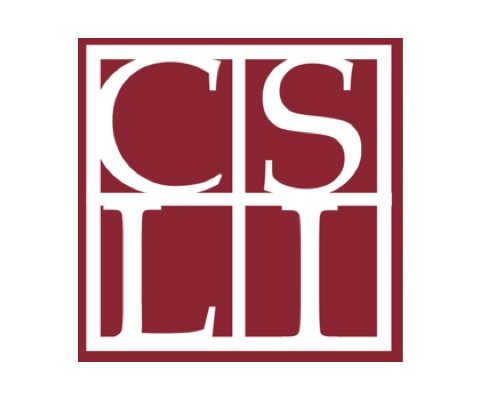Back to series


FOCUS OF THE MONTH: FAITH IN AND KNOWLEDGE OF GOD
Learn more in our Dawn Treader Magazine
 We know we are supposed to “live by faith” (Romans 1:17, Hebrews 10:39) as followers of Jesus. But what many believers don’t realize is that faith leads to and is inseparably linked with the knowledge of God. Proverbs speaks repeatedly about the need for wisdom in order to have a complete relationship with God. So how do we develop knowledge of God in our children, in building their faith walk?
We know we are supposed to “live by faith” (Romans 1:17, Hebrews 10:39) as followers of Jesus. But what many believers don’t realize is that faith leads to and is inseparably linked with the knowledge of God. Proverbs speaks repeatedly about the need for wisdom in order to have a complete relationship with God. So how do we develop knowledge of God in our children, in building their faith walk?
For week one, ask the first question over an unhurried meal. Let the children think about it and then offer their own answers. The children should talk more than the parents. Throughout the week, offer the different reasons highlighted and let the children discuss them. (Parents, read through the relevant Bible passages in advance.) Challenge the children to look up other verses addressing the question. Do the same for the following questions each week for the month.
QUESTIONS TO HELP YOUR FAMILY GROW
Week One:
What is knowledge?
Read: Proverbs 1:7, 3:1-35, and 19:20, Galatians 5:22-6:10
- Knowledge is understanding — recognizing how things in the creation relate to one another and how we are to make the best use of them.
- All knowledge is rooted in God’s knowledge, as He is the Creator of all things and knows all things.
- Knowledge is a virtue — it is one of the many characteristics that God expects us to cultivate as His followers, as (along with all the other virtues such as faith, love, kindness, patience, and the rest of the fruits of the Spirit) it makes our lives much better as we get to know Him!
- In order to develop knowledge, we have to cultivate a curious and excited approach to life, remembering that God has wonderful things waiting for us at every turn, so learning becomes something fun and desirable.
- Knowledge also involves paying attention to and growing in our relationships with other people, especially other believers, because we gain in understanding as we see how others from different backgrounds and situations react to the ordinary events of our lives.
Week Two
How does faith relate to knowledge?
Read: Proverbs 9:10, Romans 11:33-36, James 1:5-6
- The first step in knowing something is to believe that something exists (fairly obvious, but an essential step to consider nonetheless).
- All knowledge, whether it involves simply learning about something or discovering truths about people and cultures, requires a basic foundation of trust: apart from a few individual “discoveries,” most of what we come to know in life is initially accepted on the authority of what others with more experience have told us, from which we then can draw informed conclusions.
- Accordingly, the greatest knowledge, knowledge of God, requires us first to trust in Him and believe what He says — for we can only know God from what He reveals about Himself to us (Luke 10:22, John 1:18).
- Faith in God leads to knowledge in all areas, for only when we have committed our lives to God can we see and understand the way the world really is.
Week Three:
How do faith in and knowledge of God transform our lives?
Read: Daniel 1:8-21, Ephesians 4:13-16, Philippians 1:9-11, 1 Peter 1:13-16
- The more we trust in and know about God, the more confident we become in following Him and doing His Will in our lives, even if that goes against what other people or our circumstances seem to expect us to do.
- Faith gives us a sharper vision of what can happen if we follow God’s instructions, so we become more obedient and productive disciples.
- Knowledge of God, from the Bible, makes us realize how holy He is and how holy we must become in order to be good witnesses to His Glory here on earth.
- Knowledge tells us what God expects His children to do, deepening our convictions of what is right and wrong; and faith in Him gives us the strength and assurance we need to act on our knowledge of what is right in His sight.
Week Four:
How can we develop our faith and knowledge as growing disciples of Jesus?
Read: Proverbs 2:1-9, Galatians 6:6, 1 Thessalonians 5:11-16, 2 Peter 1:3-21
- Pray for God’s guidance; ask that He will fill us with faith and wisdom and readiness to hear His direction.
- Read the Bible: “hide the Word in your heart” (Psalm 119:11), and deepen your knowledge and understanding of God Pray that the Holy Spirit help you to recognize His Voice.
- Learn from other Christians — not only those you know personally, but from other places and other times: reading the history of our faith and about its many instrumental followers is a great aid to us in understanding and acting out our own faith in Christ.
- Be willing to be corrected: we grow in knowledge when we replace a wrong way of doing things with a right way!
C.S. Lewis Institute
Author
C.S. Lewis Institute, in the legacy of C.S. Lewis, works to develop wholehearted disciples of Jesus Christ who will articulate, defend, share, and live their faith in personal and public life. Founded in 1976 by Dr. James Houston and James R. Hiskey, the Institute provides leading teachers who address important issues of the day from the perspective of Biblical orthodoxy, while also providing discipleship for individuals in small groups.

 COPYRIGHT: This publication is published by C.S. Lewis Institute; 8001 Braddock Road, Suite 301; Springfield, VA 22151. Portions of the publication may be reproduced for noncommercial, local church or ministry use without prior permission. Electronic copies of the PDF files may be duplicated and transmitted via e-mail for personal and church use. Articles may not be modified without prior written permission of the Institute. For questions, contact the Institute: 703.914.5602 or email us.
COPYRIGHT: This publication is published by C.S. Lewis Institute; 8001 Braddock Road, Suite 301; Springfield, VA 22151. Portions of the publication may be reproduced for noncommercial, local church or ministry use without prior permission. Electronic copies of the PDF files may be duplicated and transmitted via e-mail for personal and church use. Articles may not be modified without prior written permission of the Institute. For questions, contact the Institute: 703.914.5602 or email us.
Speakers

C.S. Lewis Institute
Author
Team Members
C.S. Lewis Institute
Author
C.S. Lewis Institute, in the legacy of C.S. Lewis, works to develop wholehearted disciples of Jesus Christ who will articulate, defend, share, and live their faith in personal and public life. Founded in 1976 by Dr. James Houston and James R. Hiskey, the Institute provides leading teachers who address important issues of the day from the perspective of Biblical orthodoxy, while also providing discipleship for individuals in small groups.


